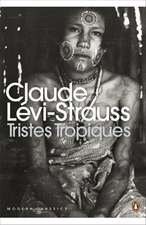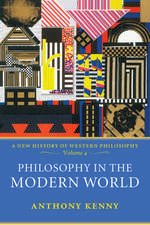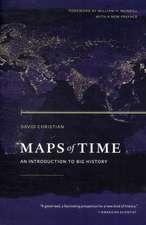Dystopia: A Natural History
Autor Gregory Claeysen Limba Engleză Paperback – 3 mai 2018
| Toate formatele și edițiile | Preț | Express |
|---|---|---|
| Paperback (1) | 235.37 lei 10-16 zile | +77.84 lei 5-11 zile |
| OUP OXFORD – 3 mai 2018 | 235.37 lei 10-16 zile | +77.84 lei 5-11 zile |
| Hardback (1) | 884.01 lei 31-37 zile | |
| OUP OXFORD – 30 noi 2016 | 884.01 lei 31-37 zile |
Preț: 235.37 lei
Preț vechi: 280.27 lei
-16% Nou
Puncte Express: 353
Preț estimativ în valută:
45.04€ • 47.15$ • 37.27£
45.04€ • 47.15$ • 37.27£
Carte disponibilă
Livrare economică 05-11 martie
Livrare express 28 februarie-06 martie pentru 87.83 lei
Preluare comenzi: 021 569.72.76
Specificații
ISBN-13: 9780198820475
ISBN-10: 019882047X
Pagini: 576
Ilustrații: 16 black and white illustrations
Dimensiuni: 154 x 233 x 32 mm
Greutate: 0.86 kg
Editura: OUP OXFORD
Colecția OUP Oxford
Locul publicării:Oxford, United Kingdom
ISBN-10: 019882047X
Pagini: 576
Ilustrații: 16 black and white illustrations
Dimensiuni: 154 x 233 x 32 mm
Greutate: 0.86 kg
Editura: OUP OXFORD
Colecția OUP Oxford
Locul publicării:Oxford, United Kingdom
Recenzii
This dense, interdisciplinary, ambitious and impressive book does many things at the same time ... The exposition is highly readable ... an exceedingly rich volume
The compendious book shines ... when Claeys is analyzing or at least cataloging possible sources of the twentieth-century perception of this-worldly dystopia ... Dystopias, Claeys rightly thinks, usefully function to help keep the worst at bay in a derelict time. For anyone who hopes that future days will dawn again for the better ... it is a strangely uplifting lesson.
a shrewd new study
[Claeys'] approach is genuinely striking ... it illuminates a good deal ... this book deserves to provoke much discussion in academia ... Claeys is an eloquent and lively writer
The compendious book shines ... when Claeys is analyzing or at least cataloging possible sources of the twentieth-century perception of this-worldly dystopia ... Dystopias, Claeys rightly thinks, usefully function to help keep the worst at bay in a derelict time. For anyone who hopes that future days will dawn again for the better ... it is a strangely uplifting lesson.
a shrewd new study
[Claeys'] approach is genuinely striking ... it illuminates a good deal ... this book deserves to provoke much discussion in academia ... Claeys is an eloquent and lively writer
Notă biografică
Born in France, and educated in Canada and the UK, Gregory Claeys is Professor of the History of Political Thought at Royal Holloway, University of London. A historian of British radicalism and socialism from 1750 to the present, he is the author of eight books and editor of some fifty volumes, mostly of primary sources. He has written studies of Robert Owen and Owenism, Thomas Paine, and John Stuart Mill, as well as of utopianism. He has been visiting professor at the Australian National University, Keio University, Tokyo, the University of Hanoi, and Peking University.





















